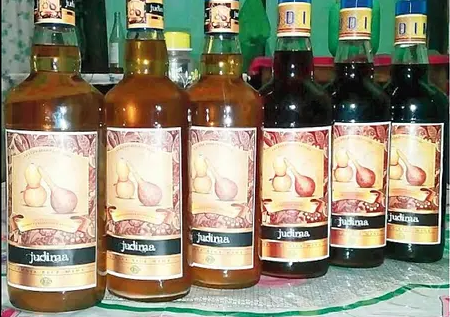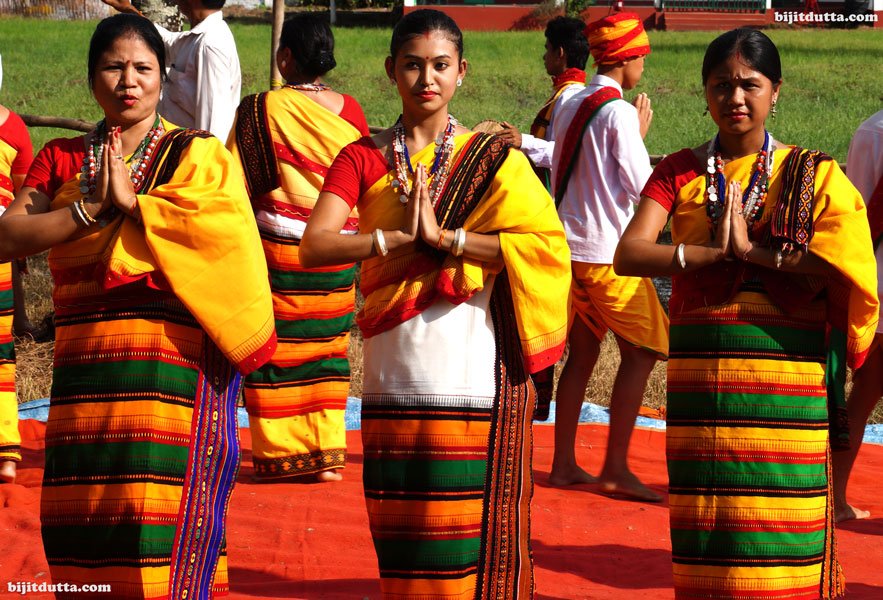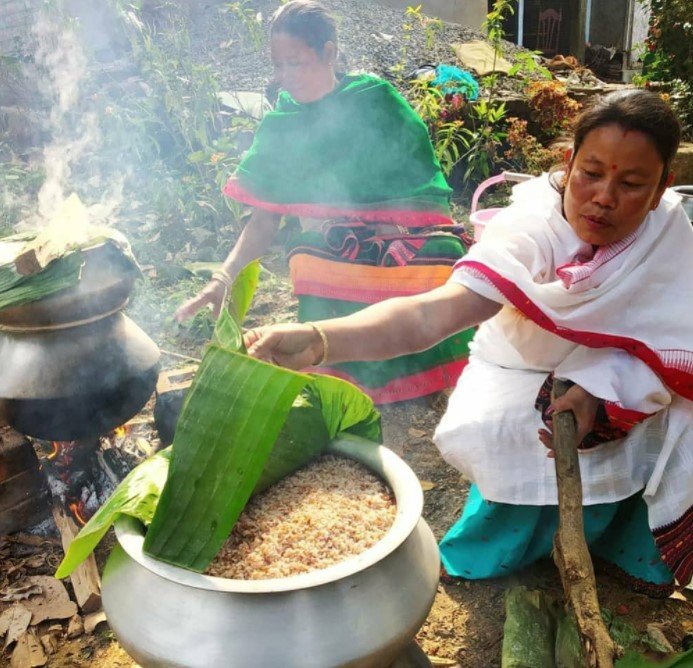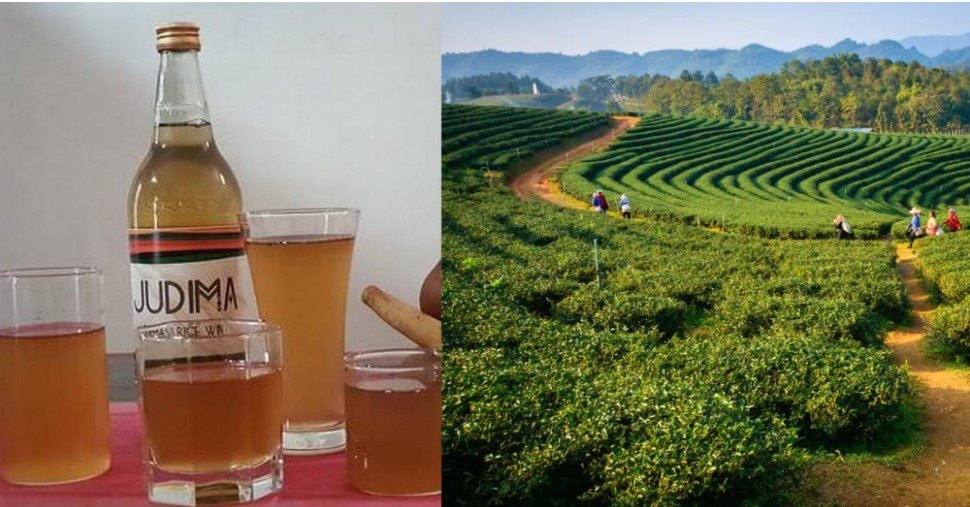Assam’s traditional Judima rice wine becomes the first beverage from the seven sisters to receive a GI tag and we can’t keep calm but feel proud!
Judima is a homemade rice wine that was invented and is produced by the Dimasa tribe of the Dima Hasao district of Assam. It is patent to the Dimasa tribe and is unique for many reasons. The drink is made from sticky rice which is steamed and blended with a secret mix of traditional herbs and takes around one week to be fully fermented. The smooth texture of the beverage and its honey-like sweetness attracts all visiting Assam.


For the unversed, a GI tag expands for the Geographical Indication Tag that is awarded to the products that are associated with a particular geographical location. This Tag is awarded by the Controller general of designs, Patents, and trademarks who works for the protection of geographical indications associated with the goods of India. A GI tag helps in the better protection and selling of the product and marks its authenticity in front of its customers.
A team of scientists and professors from the Assam Agriculture University’s research division acted as facilitators in the whole process of Judima getting its GI tag. Scientists Dr Kishor Kumar Sharma, Dr Gargi Sharma, Dr S Maibongsa from AAU, and Professor Dr Uttam Baithari from Gauhati University were the major people who took care of the application process and documentation of the unique wine.
“We are elated at the recognition Judima has got. It has been the outcome of nearly three years of efforts,”
“While efforts are underway to get the GI tag for some other traditional alcoholic beers made by different tribes in the region, Judima is the first such drink to get the recognition,”
“We would have got the GI recognition the same year, but due to the Covid-19 pandemic and the associated restrictions, it took several months, and finally we got it this month.”
said Subodh Maibongsha, principal scientist and head of Krishi Vikash Kendra,(AAU)
Dr Maibongsa had applied for the GI tag back in the year 2018 however they reapplied for the tag in 2019 with the help of a women’s group named Dimijik Hasao.
“Judima is traditionally made in our homes, but we wanted to brand it and market elsewhere and also to ensure its preservation for the future. That’s why we formed our group and applied for the GI tag,”
“Now that we have got the tag, we are looking at branding it and selling it in unique bottles shaped like a locally available gourd. We are also trying to ensure that the product is prepared in a universally accepted hygienic manner, maintaining uniform taste, flavour, texture, etc.”
Miss Mukuta Hojai, the executive member of the women’s association said
The Dimasa Tribe and its History
The Dimasa tribe is a part of the greater Kachari group and they reside in the northern half of the Dima Hasao district of the Indian state of Assam and Nagaland. The word “Dimasa” stands for the “children of the big river” to which the Brahmaputra River is being referred.
Per the 2011 census report, the population of this tribe stands at 262,413. The languages spoken by the tribe are Grao-Dima and English and the tribe celebrates several festivals wearing colourful clothes and performing dance forms like Baidima and Hadaobani.


The Judima Festival
Assam’s Dimasa tribe is a master at celebrating life!
With the numerous joyful festivals they celebrate, Judima is one of the most special among all. Judima festival is a two-day cultural event organized around the end of December every year by the local residents of the Dima Hasao Hills. The festival attracts tourists from all over the country and showcases the tribe’s traditions dance, stories, folk music, sports, and the beauty of the north-eastern hills of India. Moreover, the Dimasa delicacies are severed with the freshly brewed rice wine “Judima” after which the festival has been named.
Assam’s favourite Rice brew – Judima wine
The production of the Judima wine is mainly done by the women of the tribe and it is produced in almost every house. The process starts by making starter cakes which are prepared by mixing some powdered herbs with rice flour to make a dough, that is later dried for further use.
For the next step sticky rice, preferably “Bora” rice is steamed and mixed with the crushed starter cake. The liquid is then kept in earthen vessels and fermented for around a week after which it is severed with savoury Dimasa delicacies.


Popular Local brews of Northeast India:
- Apong: a rice beer from Arunachal Pradesh
- Chuwak: traditionally prepared by the women of Tripura
- Ka Kiad um & Bitchi: a rice beer from Meghalaya
- Zu: a traditionally produced beer from Mizoram
- Yu: A fermented rice beer from Manipur


